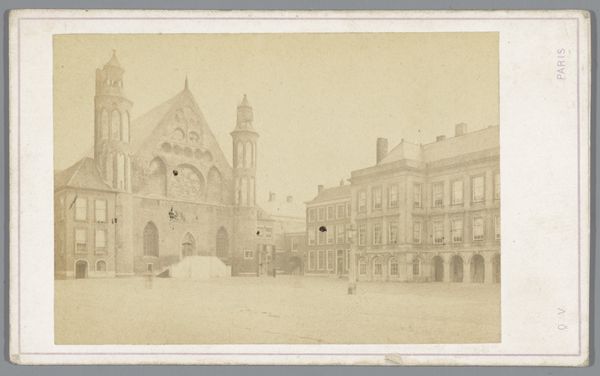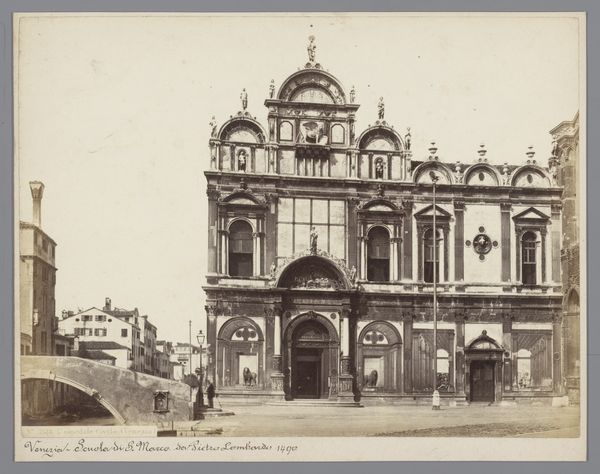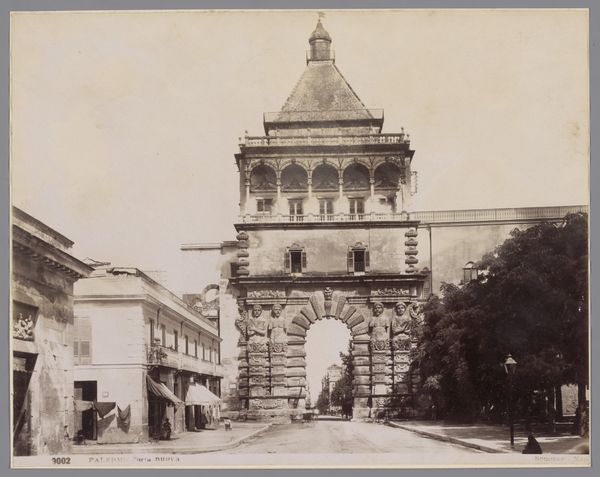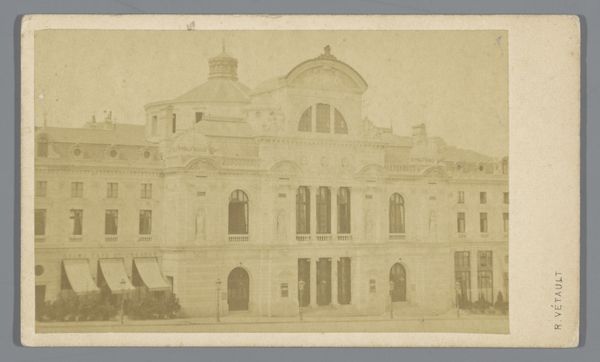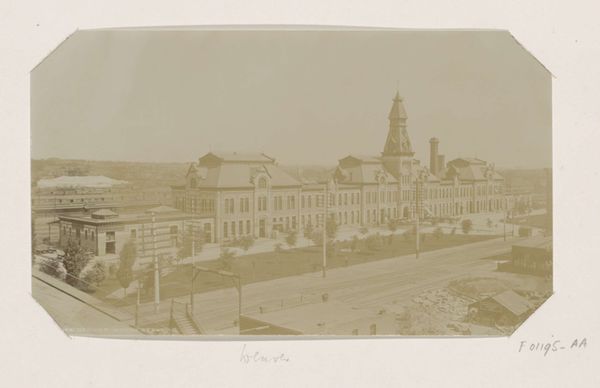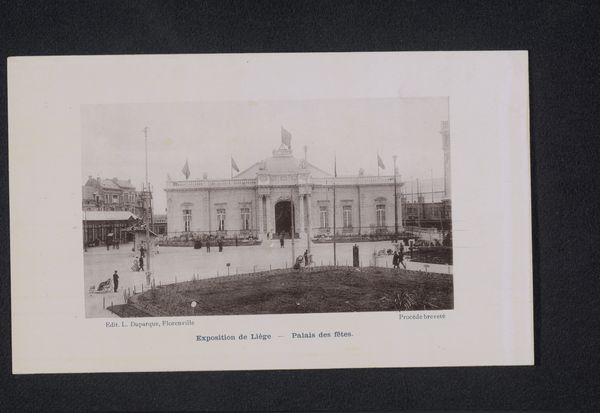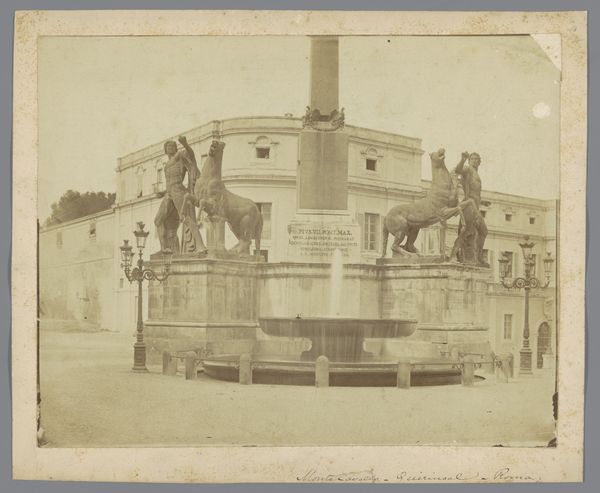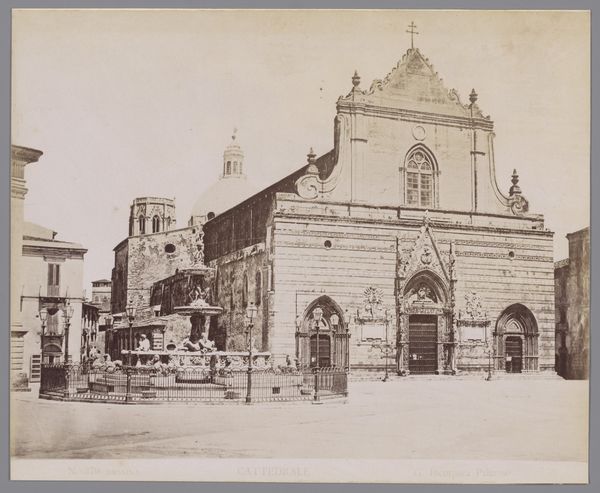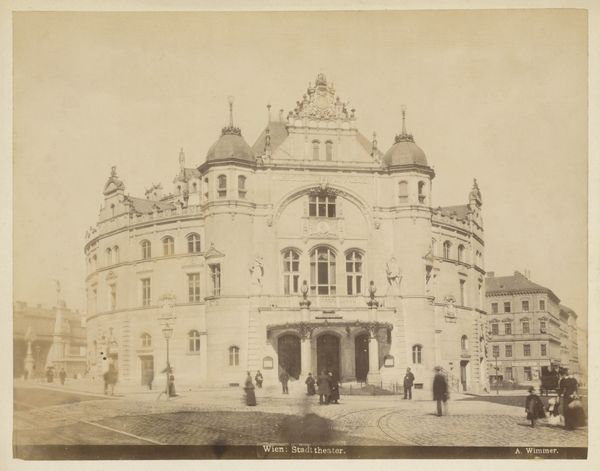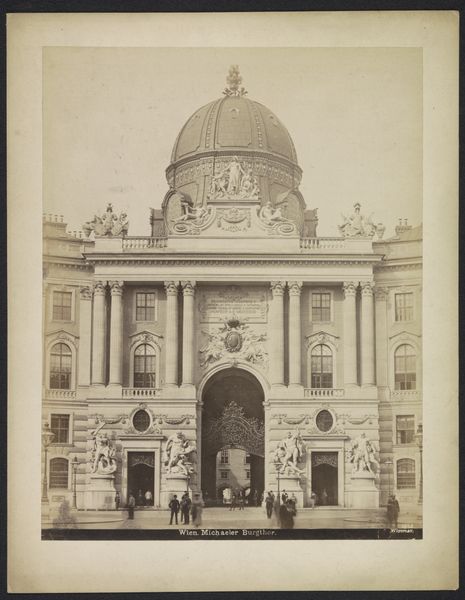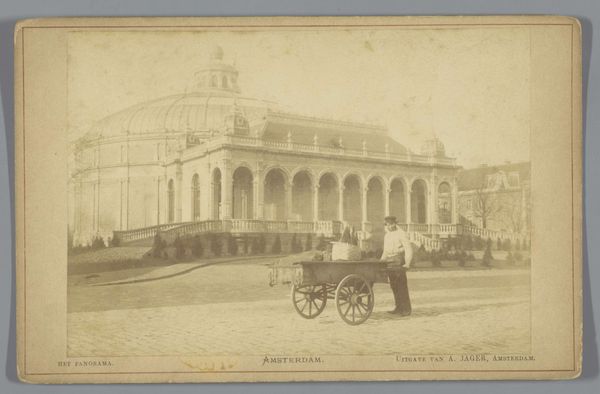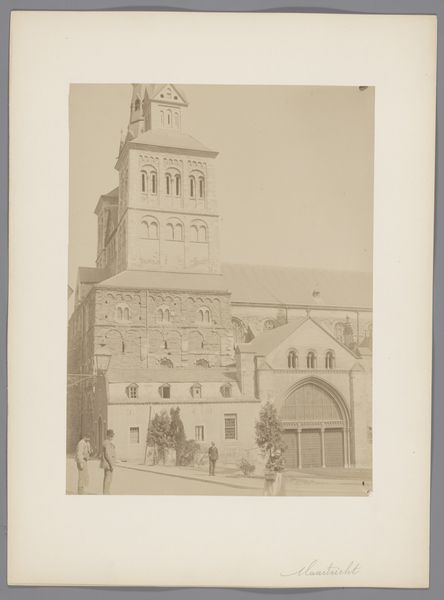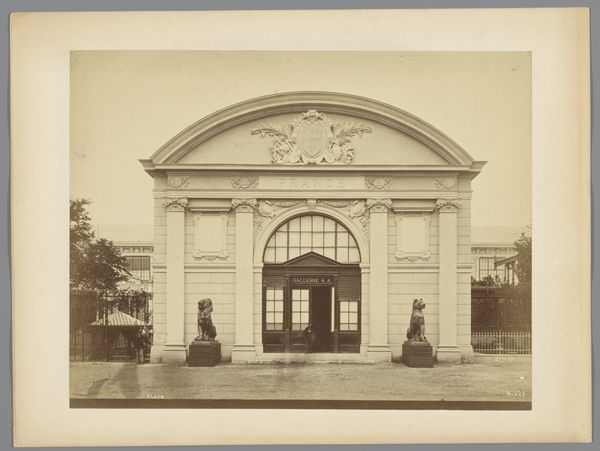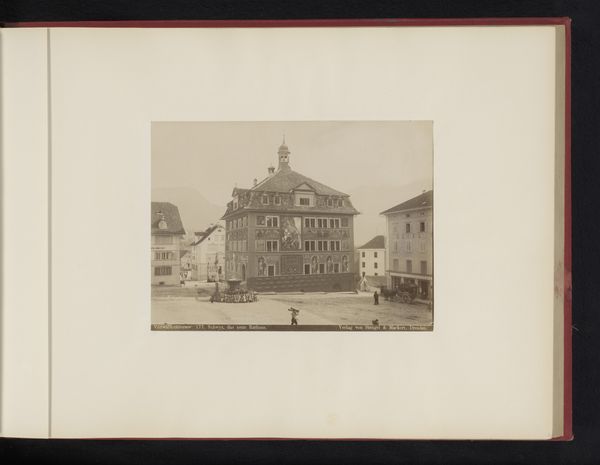
Dimensions: height 191 mm, width 262 mm
Copyright: Rijks Museum: Open Domain
Gustave Eugène Chauffourier made this photograph of the Fontana dell'Acqua Paola in Rome at an unknown date. It's a modest-sized albumen print, a process which dominated photography in the 19th century. The process involved coating paper with egg white and then light-sensitive silver nitrate. The resulting print, contact-printed from a negative, yields fine detail and a distinctive sepia tone, made by the reaction of silver compounds over time. But the egg white base is key here; it’s a completely commonplace material, brought into dialogue with sophisticated optics. Photography in this period was a novel merging of science and art, and as such, it brought new perspectives to bear on the built environment. Notice how Chauffourier carefully frames this view of the fountain, making a grand architectural space approachable and intimate. It’s an early example of how photography democratized access to visual culture. It's a view of a grand monument mediated by an everyday material.
Comments
No comments
Be the first to comment and join the conversation on the ultimate creative platform.
